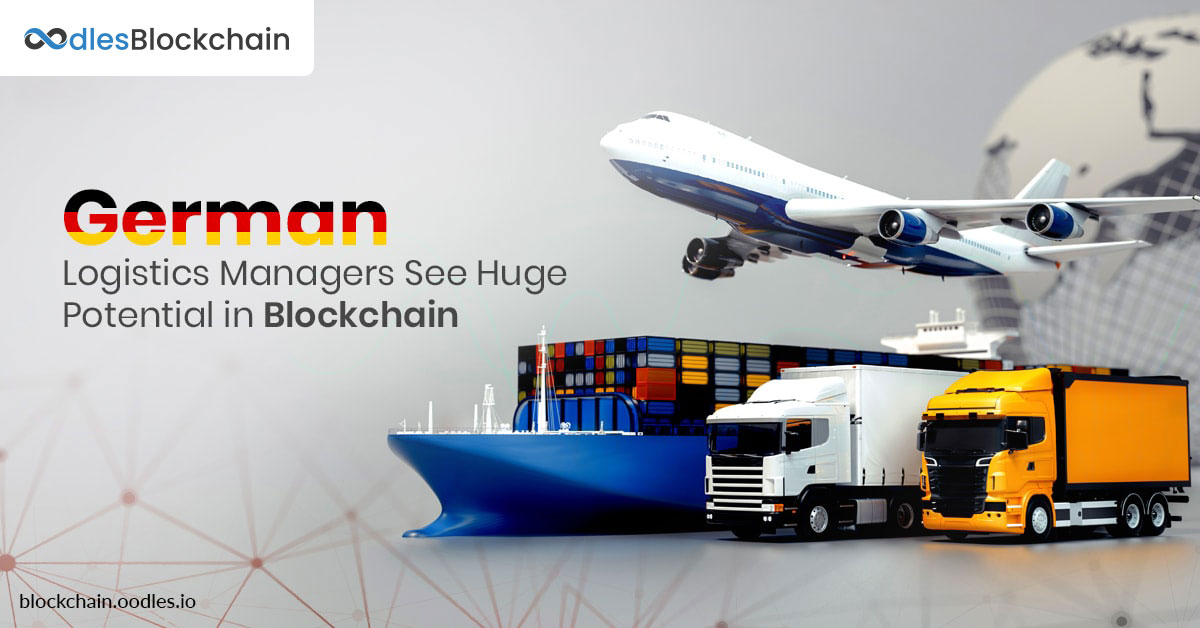-
It seems like blockchain is becoming unstoppable. Even after the burst of the Bitcoin bubble, it's still a reliable technology. According to a recent survey, a notable portion of German Logistics managers anticipates that blockchain supply chain development services and blockchain based logistics systems could become the force that will revolutionize the logistics and supply chain sector.
Although the survey wasn't aimed at gathering blockchain-specific stats, 35% of the respondents identified the vitality of blockchain technology. 33% said that Big Data is vital for logistics, an area where blockchain is poised to rule and excel.
Even though the blockchain is not the only Big Data solution, it does have the potential to be the foundation for a new world of global logistics.
Big data is huge chunks of data. It relies on AI (Artificial Intelligence) to extract the necessary information from the piles of data. It wouldn't be possible for a human to execute such a task. Here, the blockchain could be the database that enables global trade information to be recorded massively.
Blockchain-based Logistics Solutions
As per the survey, most of the respondents found that blockchain is becoming a necessity for the collaboration process. It's the section where there is an unprecedented amount of efficiency waiting to be explored.
For decades, shipping management has remained opaque with records being kept on paper, making research a difficult task, even for a large-scale company.
For instance, a company is looking to finance a product that is in another country and has shipped it to them.
With the existing system, it could take weeks to push through.
On the other hand, with blockchain-based supply chain solutions, where the buyer is located, who has financed the product, and how the goods are being shipped to that country, several different entities can be recorded in the transaction.
You may also like | Supply Chain Development with Blockchain in 2023
How Blockchain-based Supply Chain Solutions Help?
A company could employ a blockchain and smart contract-based trade finance platform to secure a loan for the product it wants to purchase, and the bank that's lending the credit could use that same platform to release the payment to the seller.
Instead of receiving the products at the port, a Blockchain and IoT-powered scanner could verify that goods have left the shipper's warehouse, and release payment via a blockchain-based smart contract.
Also, Explore | Preventing Fraud in Contracts, Supply Chains, and Identities with Blockchain
All the information about the whole process can be stored on one shared blockchain ledger. Also, as the goods reach the other country, IoT sensors can help track their every movement from checkpoint to checkpoint.
As the goods are sent from one shipping company to another, those IoT sensors would verify the payment for the services, without requiring any human interaction.
Eventually, if everything goes well, then, the goods would reach their destination, at that time the buyer would incur the debt from the bank that has financed the trade, as the goods reach their legit possession.
Unquestionably, there would be a requirement of provisions for unexpected situations.
In general, modern blockchain-based logistics systems would provide every involved with benefits that would incentivize a shift toward improved use of technology, and cost-effective methods.
Also Read:: Most Influencing Blockchain Use Cases for SCM (Supply Chain Management)
How are Big Players yielding the benefits?
Some of the world's leading shipping companies are heavily investing in blockchain-based logistics systems. Also, numerous port operators are developing blockchain-based logistics systems that would track the products as they are shipped from the port. It will greatly enhance tracking and the customs process.
Companies dominating trade finance are exploring blockchain-based systems. Ping-An has begun using a blockchain-based platform for regional trade finance in mainland China.
For more information about blockchain-based supply chain solutions, connect with our skilled blockchain developers.

Our Offices
INDIA
Emaar Digital Greens, Sector 61,
Gurugram, Haryana
122011.
Welldone Tech Park,
Sector 48, Sohna road,
Gurugram, Haryana
122018.














